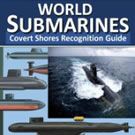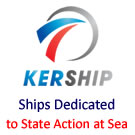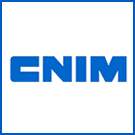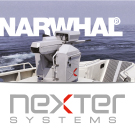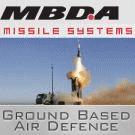| |
| a |
Naval Forces News - USA |
U.S. Navy's X-47B program ramps up flight test, readying for summer
sea trials |
The X-47B
Unmanned Combat Air System demonstrator (UCAS-D) is gearing
up for shore-based flight test activities in preparation for the next
round of sea trials this summer. The program’s test team will
conduct various test events with the X-47B over the next few months
in an effort to mature air traffic control and ground support standard
operating procedures for co-use of airspace between unmanned and manned
aircraft during day and nighttime operations. |
 ALANTIC OCEAN (Nov. 9, 2013) The experimental X-47B Unmanned Combat Air System Demonstrator (UCAS-D) conducts touch-and-go maneuvers aboard the aircraft carrier USS Theodore Roosevelt (CVN 71). Theodore Roosevelt is the third carrier to test the tailless, unmanned autonomous air craft's ability to integrate with carrier environment. |
|||
“Continuing to fly the X-47B in the Patuxent
River air space will further exercise the research, test, development
and evaluation (RDT&E) infrastructure with an unmanned air system,”
said Capt. Beau Duarte, program manager for Unmanned Carrier Aviation
at Patuxent River. “These tests are a build-up for the next carrier
event this summer.”
As the first unmanned aircraft to take off and land from a modern aircraft carrier, X-47B will once again embark on USS Theodore Roosevelt (CVN 71) in the August timeframe. This time, the test team will focus on perfecting flight deck operations and integrating the X-47B with manned carrier aircraft. |
|||
 The Navy's unmanned X-47B flies over Naval Air Station Patuxent River, Md. during its first nighttime flight in April 2014. (U.S. Navy photo) |
|||
“We are working toward a new set of firsts for
the X-47B,” said Matt Funk, X-47B lead test engineer. “We’ll
test the new capabilities of the X-47B wing-fold and tailhook retract
system, and will demonstrate compatibility with a carrier jet-blast deflector
on the flight deck for the first time.”
The proven use of these functions will allow the air vehicle to take off, land, and hold in the same pattern as manned aircraft, the next step toward UAS operations aboard aircraft carriers without disruption to normal carrier flight deck operations, he said. “This at-sea period will mark the first time manned aircraft and the X-47B will operate together on the flight deck,” Duarte said. The goal is to clear the deck within 90 seconds after landing and demonstrate deck handling on par with manned aircraft. The U.S. Navy will conduct X-47B flight operations over the next year to mature technologies for the future Unmanned Carrier Launched Airborne Surveillance and Strike system and refine the concept of operations to demonstrate the integration of unmanned carrier-based aircraft within the carrier environment, Duarte said. Link to X-47B Technical Datasheet |
|||





